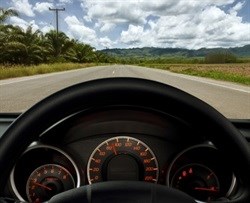
Top stories





HR & ManagementNational minimum wage 2026: What workers (and employers) need to know
Danelle Plaatjies and Ludwig Frahm-Arp 17 hours

More news






















He says the report highlights a technology-driven revolution in any number of industries - and especially those in high-tech sectors like the automotive industry and logistics. The fleet management industry faces an exciting future - but one that requires immense innovation by current players if they are to compete with these 'disruptive innovations'.
Fleet management is an industry that stands to gain much from the application of business intelligence (BI) because, as the report states, "When driving, but especially in the case of fleet management, the vehicle cannot be separated from either its cargo or driver. In addition, it's increasingly a package that has also become inseparable from technology, specifically its business intelligence (BI)/analytics component."
Andrew McLintock, an Enterprise Solutions Architect/Consultant, and MD/joint owner of Foxfire-BI, says, "The quality of the analysed data you get out is commensurate with the diversity, volume, relevance and quality of data input: the vehicle, driver behaviour, time of day and seasonal factors, billing, fuel and maintenance costs, lading, medical history, route-info, and more.
"Typically, where a fleet management system has access to all this data and is integrated with ERP (enterprise resource planning) and CRM (customer relations management) systems, it transforms from a management tool that simply monitors fleet costs into an holistic enterprise solution that integrates everything from the driver and vehicle to the public and the market. This in turn enables the company to forge ahead with an informed and purpose-driven intent. It empowers the enterprise to unite and coordinate three of any business's biggest assets - fleet, service/infrastructure and its human capital."
In addition, South Africa is set to follow the European trend of using fleet management tools to improve driver behaviour. The report states, "Health and occupational safety organisation NOSA has a campaign to adopt the European model of safety management in driving, which is becoming a big part of fleet management."
The challenge in this regard is that, as McLintock points out in the report, "Drivers are the single biggest vulnerability in any fleet... Because of the [tough] work conditions, divorce and alcoholism are more prevalent among long-distance drivers than other occupation and they have a higher incidence of HIV/Aids."
He says that AARTO (Administrative Adjudication of Road Traffic Offenses) will also be re-enforcing this. "It is not yet implemented, but it addresses the fact that until now there has been no clear accountability for company cars or trucks. Once it is implemented, that accountability will reside with the company, which will be liable for any sort of traffic infringement by its employees while driving a company vehicle. In particular, under the demerit system, companies will have to closely manage driver demerits because where a driver's licence becomes suspended and he continues to drive, the company may be liable for any consequences."
For fleet managers, more and more tools are at their disposal and available to assist in monitoring driver behaviour. For instance, trucks are starting to be manufactured with 'breathalyser ignitions'. The driver breathes into the device both to start the vehicle and at regular intervals while driving.
McLintock says, "The technology exists to incorporate a fingerprint-based biometrics system into a vehicle's ignition system and even have it as a constant security device installed either in the steering wheel or gear lever so that no other person could drive it. Furthermore, such systems are affordable." The obstacle, he says, is achieving the necessary levels of cooperation between all parties - authorities, manufacturers and fleet management companies/insurers.